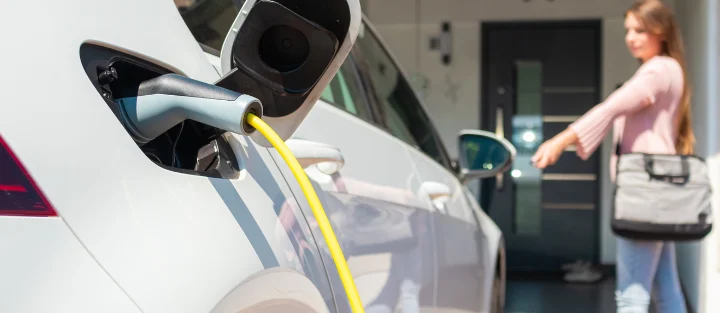As electric vehicles (EVs) become more popular, the infrastructure to support them, like home charging stations, is becoming an essential part of ownership. With this shift, many insurance providers are now offering the option to bundle your home charging station with your EV insurance policy. But is this the right move for you? Let’s explore the pros and cons of bundling home charging stations with EV insurance, and how it impacts both your home and auto coverage.The Pros of Bundling Home Charging Stations with EV Insurance 1. Simplified Insurance ManagementOne of the most significant advantages of bundling your home charging station with your EV insurance is the convenience of managing everything under one policy. This means fewer bills to pay, one point of contact for claims, and less paperwork overall. Simplifying your insurance can save you time and reduce the chances of missing a payment or misunderstanding your coverage. 2. Potential Cost SavingsInsurance providers often offer discounts for bundling different types of coverage, and adding your home charging station to your EV insurance could lead to lower premiums. By combining these two, you might qualify for multi-policy discounts that can help you save money in the long run. Additionally, bundling can provide better coverage terms for the charging station, protecting it from potential damages. 3. Comprehensive ProtectionBundling ensures that both your EV and the charging station are covered under a single, comprehensive policy. This can be especially beneficial if your charging station is damaged in an incident that also involves your vehicle. Instead of dealing with separate claims for home and auto insurance, a bundled policy allows you to handle everything together, streamlining the claims process. The Cons of Bundling Home Charging Stations with EV Insurance 1. Limited FlexibilityWhile bundling can simplify your insurance, it might also limit your flexibility. If you want to switch providers or policies, you may find it more challenging to do so without disrupting both your home and auto coverage. Unbundling these policies in the future might also lead to higher premiums, as you could lose any discounts you previously enjoyed. 2. Higher Combined DeductiblesBundled policies might come with higher combined deductibles. If both your EV and charging station are damaged in a single event, you could face a significant out-of-pocket expense before your insurance kicks in. It’s essential to review the terms of your bundled policy to understand how the deductibles work and whether they make financial sense for you. 3. Coverage GapsNot all insurance providers offer the same level of coverage for home charging stations, even when bundled with EV insurance. There may be specific exclusions or limitations that could leave you with gaps in coverage. For instance, some policies might not cover certain types of damage to the charging station or may limit coverage based on where the station is installed (e.g., in your garage versus outside). Considerations for Home InsuranceWhen bundling, it’s crucial to consider how the charging station might impact your home insurance. Installing a charging station can be seen as a home improvement, and some insurers might require you to update your home insurance policy accordingly. Ensuring that your home insurance covers the installation and any potential risks associated with the charging station is vital. _ Bundling your home charging station with your EV insurance has its benefits, including simplified management, potential cost savings, and comprehensive protection. However, it also comes with downsides, like limited flexibility, higher deductibles, and possible coverage gaps. Before deciding to bundle, weigh these pros and cons carefully and consult with your insurance provider to ensure that the bundled policy meets your needs and offers the best protection for your investment.
[wpcode id="4722"]











